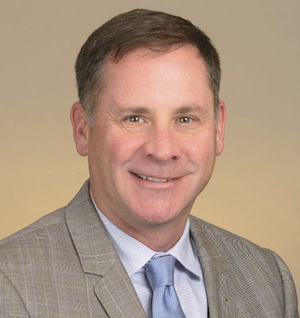By Rachel Hess
This year, Arizona State University (ASU) is celebrating the 50th anniversary of the Beta of Arizona chapter of Phi Beta Kappa. ASU’s chapter of Phi Beta Kappa was founded in December 1973 by Laurence Gould, a former professor of geosciences at the University of Arizona. Gould established ASU’s chapter in Tempe with the support of George Peak, the Dean of The College of Liberal Arts and Sciences. The first initiation was held in May 1974. Associate Dean and President of Phi Beta Kappa at ASU Paul LePore (ΦBK, Brown University) is proud to lead one of the largest chapters in the nation. LePore has been the Associate Dean for Student and Academic Programs in The College of Liberal Arts and Sciences since December 2008. He also serves Phi Beta Kappa as a member of the Council Nominating Committee, which meets triennially to slate nominees for election of Phi Beta Kappa’s leadership. LePore aims to bolster academic achievement by focusing his career on the undergraduate student experience, including student engagement, advising, program development, leadership opportunities, additional education resources, and more.
LePore reflected on the importance of ASU’s Phi Beta Kappa chapter and how it has promoted student success over the last 50 years. He remarked that he aligns with the mission and is “excited to represent Phi Beta Kappa as a champion for everything I believe in: seeing the bigger picture, connecting with others, being passionate, and recognizing the importance of the world around me.” As a faculty member, he has seen the strong foundation that liberal arts and sciences provide in dealing with the toughest global questions, and he has appreciated the value that Phi Beta Kappa adds to ASU’s campus, as recognition of the academic excellence of both students and the university.
While emphasizing that membership in the society comes with additional career, networking, and educational opportunities, LePore applauded study in the liberal arts and sciences for its ability to prepare students for the dynamism of the workforce. To just name a few, generative AI, smartphones, environmental concerns and sustainability have drastically changed the landscape of both higher education and working environments. “Liberal arts and sciences prepares you to be a lifelong thinker and does not handcuff you to what you know now. It is forward thinking and future thinking,” LePore said. “It addresses questions we can’t even imagine, that have yet to be asked, and it prepares students for the jobs in five years that we don’t even know will be part of the landscape.” He further affirmed that the ability to connect with others, think and process in unique ways, and prepare for change in geopolitical environments, human rights, and technology will serve students well and is exactly the type of multifaceted thinking that liberal arts and Phi Beta Kappa celebrate. It is critical for education to be nimble to reflect modern-day challenges.
As one of the largest Phi Beta Kappa chapters, Beta of Arizona inducted 297 ASU students in 2023 alone, LePore reported. He was especially proud that ASU pays the Phi Beta Kappa lifetime membership fee for all inducted students, and he commended on the inclusivity of the selection process as higher education has changed over the last 50 years. Now, online students are eligible to join the society. LePore noted that it is an incredible honor for ASU to be a part of Phi Beta Kappa and that the organization has played a critical role in serving the citizens of Arizona and the world, as a guidepost for embracing liberal arts and sciences and stressing expertise and excellence.
LePore shared some insight regarding Phi Beta Kappa’s role in student development, stating that “students need to have breadth and depth, as well as broad training with two years of a language” for them to be eligible for admission into the society. He explained that many ASU Phi Betes enjoy taking many classes outside their major, in which they can explore an entirely new field and augment their general education and skills. Students have the freedom to study their passions and supplement their courses. LePore commented on the unparalleled perks of language study, in promoting empathy and understanding of differing perspectives. When students travel internationally, that they learn to appreciate language and cultural complexity and connect with others in their native languages, he added. LePore actively encourages students to recognize the importance of Phi Beta Kappa, and encourages them to accept when they receive their invitations. It is a huge honor to have a 250 year old society reach out to individual students requesting them to join their ranks, he explained, and he is hoping to increase the visibility of Phi Beta Kappa at ASU.
The ASU faculty and Dean LePore are gearing up for the 50th induction ceremony and celebrations for the chapter and hope to include the local Phoenix alumni association in their events. The Phoenix alumni association has been an integral way for ASU Phi Betes to network and connect with peers, as well as enjoy the visiting speaker series. This year, ASU is hosting Andy Andrews, a sociologist from the Washington University in St. Louis who studies social movements and change in politics and media. Andrews will be giving a series of lectures for ASU’s Phi Beta Kappa chapter and Phoenix alumni. To find out more about Phi Beta Kappa at ASU, visit their website.
Rachel Hess is a recent graduate of Barrett, the Honors College at Arizona State University, with a degree in political science and Spanish and four certificates in human rights; international studies; peace, religion, and conflict; and political entrepreneurship. She was inducted into Phi Beta Kappa there in April 2022. Arizona State University is home to the Beta of Arizona chapter of Phi Beta Kappa.




